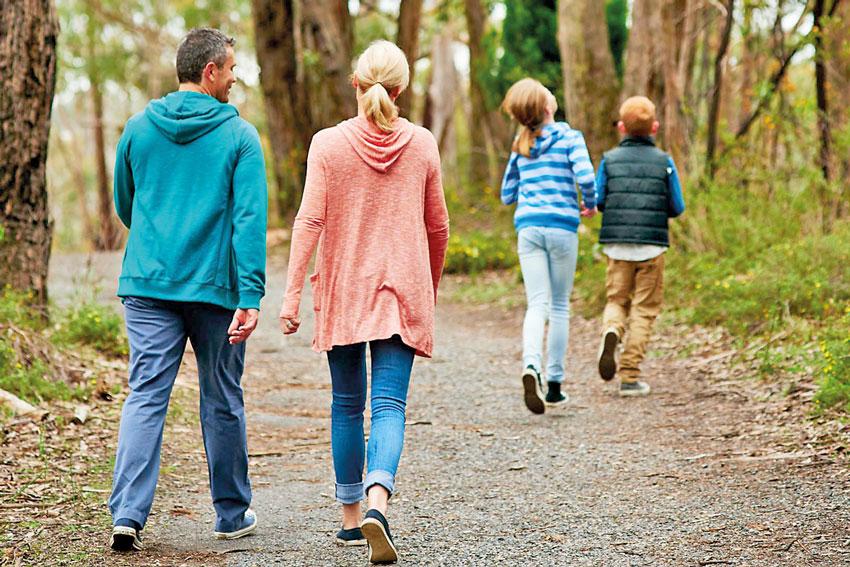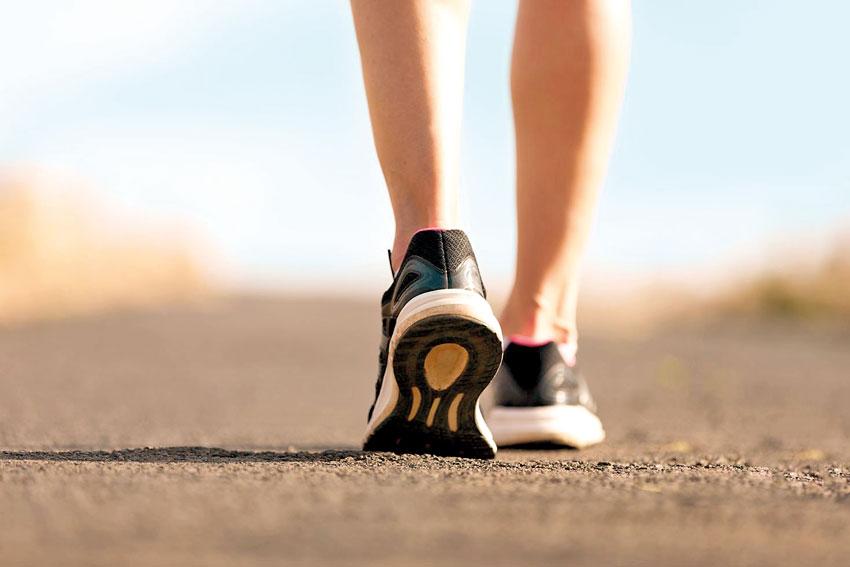
The next time you visit your family doctor, don’t be surprised if you are given a schedule for exercises with high intensity because the world of health is moving toward. In this context walking is highly encouraged in order to stay away from a range of diseases. In fact, this simple activity, you’ve been doing since small days is now being touted as “the closest thing we have got to a wonder drug”.
“Walking is a great way to improve and maintain your overall health. Sparing as short as 30 minutes from your busy schedule is known to do wonders. It will help to enhance the cardiovascular fitness, strengthen bones, reduce excess body fat and boost muscle power and endurance. It also reduces the risk of developing non-communicable diseases like heart disease, type 2 diabetes, osteoporosis and some cancers. In contrast to most of the other forms of exercise, walking is freely available and doesn’t require any special equipment or training; so once you start practising walking as a habit, there won’t be any reason to stop it halfway through” says Dr. Upul Madahapola, Registrar in sports and exercise medicine, Teaching Hospital, Kurunegala.
Waking over running and jogging
Some research studies have shown that running may result in, musculoskeletal injuries and the risk is known to go up with the intensity, especially with regard to beginners. Studies have also found that runners have significantly higher injury rates than walkers (one study found that young men who run or jog had a 25% higher risk of injuries than walkers), and that ultra-marathoners are exposes to greater risk. The main running-related injuries include tibia stress syndrome, Achilles tendon injuries and plantar fasciitis.
“However, many health care professionals now advise individuals to adhere to walking over running and jogging, in order to stay away from potential injuries especially when you are a starter who just initiated working out recently,” explained Dr.Madahapola.
Comfortable intensity and pace
For most people, there is a little difference in the amount of energy used during walking a kilometre or running a kilometre, as walking takes a longer duration. Plan on covering a fixed distance each day, monitor how long it takes you to walk this distance and when your fitness improves, you would be able to walk a longer distance, burning more energy.
“Walking fast burns more kilojoules per hour than walking slowly, but this doesn’t mean you have to push yourself until you are breathless and uncomfortable. Instead, pace yourself, so that you can still talk while walking and you walk safely within your target heart rate, which brings out the maximum health gains” highlights Dr. Madahapola.
Our bodies tend to get used to physical activity, so it is always advised to continue increasing your intensity thereby helping to improve your fitness levels. You can increase the intensity of your walks by:
- Walking up hills
- Walking with weights
- Increasing your walking speed gradually by including some quick walking patterns
- Increasing the distance you walk quickly before returning to a moderate walking pace
Right footwear
“It is extremely important to find the right shoe when it comes to walking because the wrong shoe type or walking action can cause foot or shin pain, blisters and injuries to soft tissue. Make sure your shoes are comfortable with appropriate heel and arch supports. Take light, easy steps and make sure your heel touches down before your toes. Whenever possible, walk on grass rather than concrete to help absorb the impact” says Dr. Madahapola.
Warming up and cooling down
Start walking slowly at a leisurely pace to give your muscles some time to warm up and then pick up the speed. Then, gently stretch your leg muscles, particularly your calves and front and back thighs. Stretches should be held for about 20 seconds and if you feel any pain, ease off the stretch. Don’t bounce or jolt as it can overstretch the muscle tissue and cause microscopic tears, which can give rise to muscle stiffness and tenderness.
Daily routine
Brisk walking for at least 30 minutes a day on most days of the week (150 min/week) can do wonders.
When it comes to walking ‘Brisk’ in simpler terms means that you can still talk but not sing while you are walking and it is always better to get medical advice before commencing any new exercise program of physical activity, especially if you are having some underlying medical condition.
“If it is too difficult to walk for 30 minutes at one time, do regular small bouts (10 minutes) three times a day and gradually build up to longer sessions. However, if your goal is to lose weight, you will need to do physical activity for longer than 30 minutes each day. You can still achieve this by starting with smaller bouts of activity throughout the day and increasing these as your fitness improves. Remember, you use the same amount of energy, no matter what time of day you walk, so do what is most convenient for you” states Dr. Madahapola.
However, what you should try is to make walking a part of your daily routine, where you wouldn’t want to feel tensed about sparing some time from your busy schedule. Some suggestions to make walking a part of your daily routine include,
- Taking the stairs instead of the lift for at least part of the way
- Get off public transport one stop before and walk to work or home.
- Walk to local shops whenever possible
- Take your dog a walk, so that two tasks will be covered at once
Major benefits of walking
- Cardiovascular and pulmonary (heart and lung) fitness will get enhanced
- Reduction of the risk of heart disease and stroke
- Gaining control over hypertension (high blood pressure), high cholesterol, joint and muscular pain or stiffness and diabetes
- Achieving stronger bones with well improved balance
- Increased muscle strength and endurance
- Reduction of body fat and shape up your thighs, buttocks and tummy.
Take home message
- Walking for 30 minutes a day or more on most days of the week is a great way to improve or maintain your overall health.
- Always try to keep in your mind that ‘even a little is good, but more is better’.
- Walking with others can turn exercise into an enjoyable social occasion so choose what you enjoy the most.
- See your doctor for a medical check-up before embarking on any new fitness programme, particularly if you are aged over 40 years, overweight or haven’t exercised in a long time.

 The next time you visit your family doctor, don’t be surprised if you are given a schedule for exercises with high intensity because the world of health is moving toward. In this context walking is highly encouraged in order to stay away from a range of diseases. In fact, this simple activity, you’ve been doing since small days is now being touted as “the closest thing we have got to a wonder drug”.
The next time you visit your family doctor, don’t be surprised if you are given a schedule for exercises with high intensity because the world of health is moving toward. In this context walking is highly encouraged in order to stay away from a range of diseases. In fact, this simple activity, you’ve been doing since small days is now being touted as “the closest thing we have got to a wonder drug”. 

